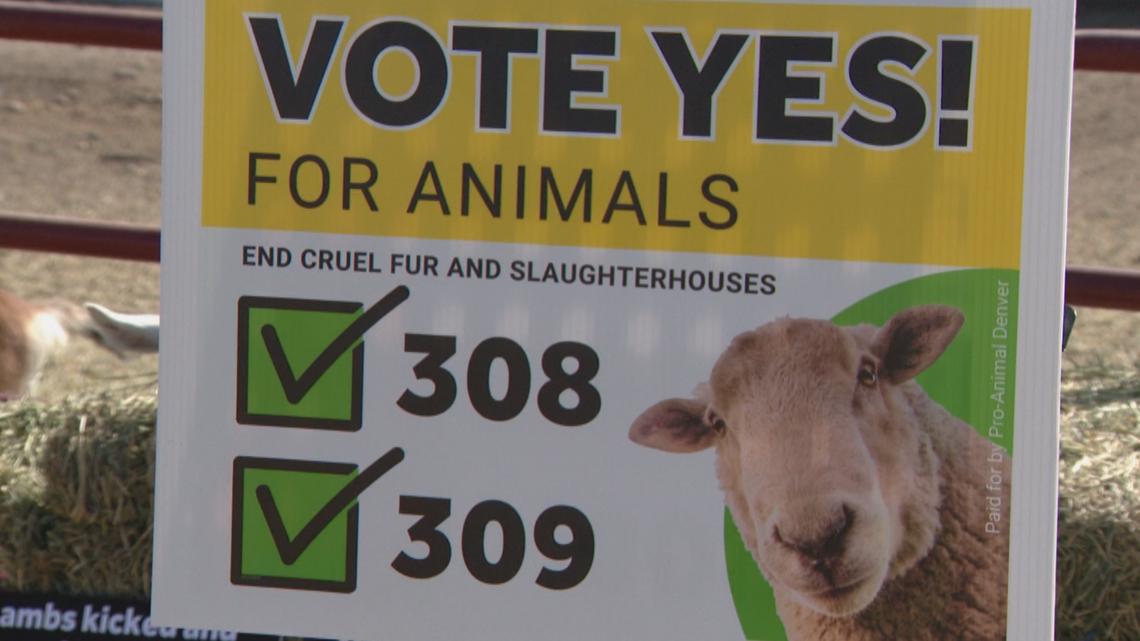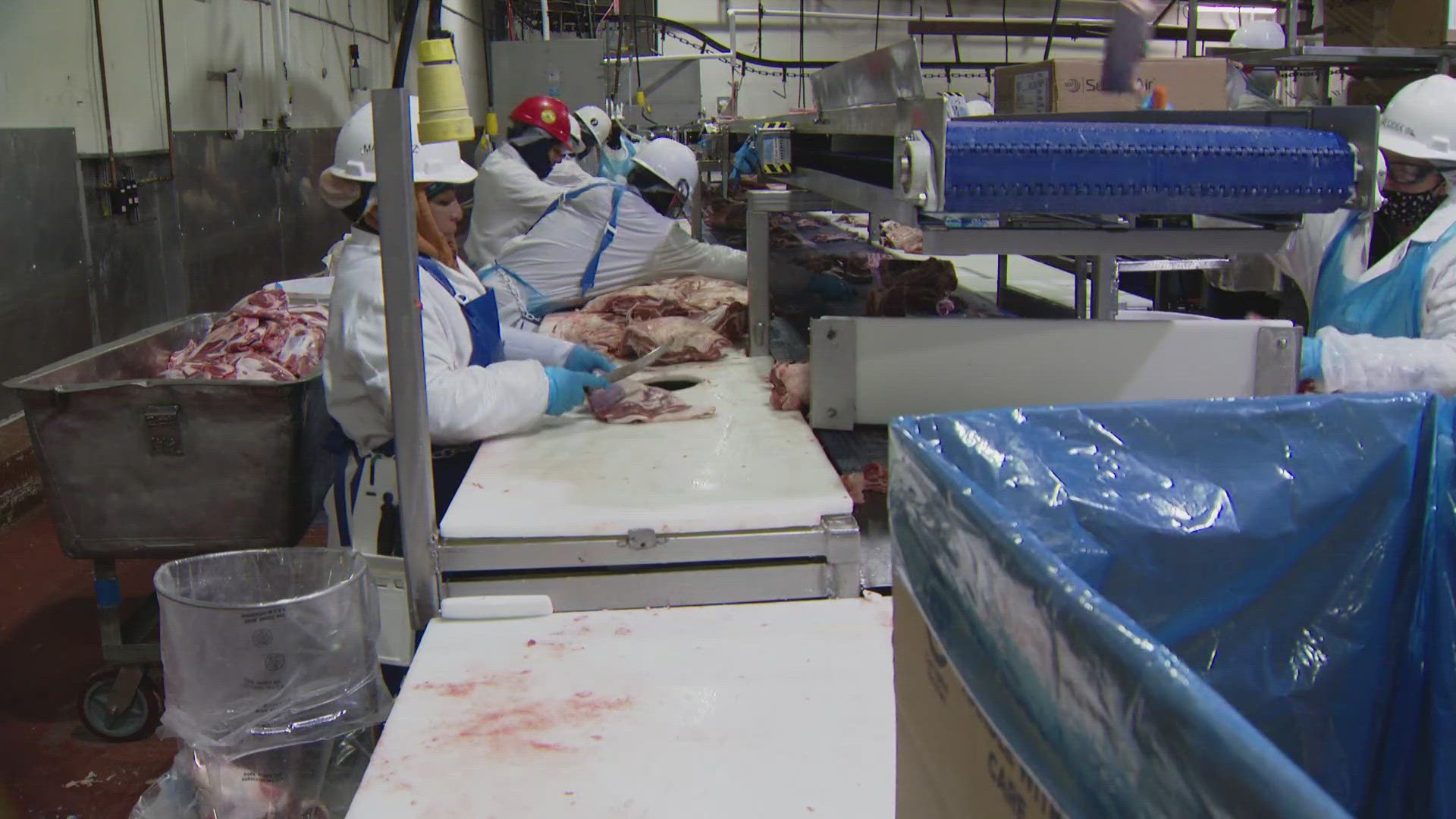DENVER — Denver voters this November face a choice on ballot measure 309, which would ban slaughterhouses citywide. If passed Superior Farms, the city's only facility, would shut down.
Superior Farms is the largest lamb slaughterhouse in the country and kills 500,000 lambs every year.


For advocates behind the measure, the ballot initiative represents a path toward what they describe as “more humane” treatment of animals. But 160 workers, many of whom have been with Superior Farms for decades, would lose their jobs.
Pro Animal Future, the activist group behind ballot measure 309, sees the ban as a critical step.
“In industrial slaughterhouses and factory farms, animal cruelty isn't the exception, it’s the rule,” said Natalie Fulton, the group’s spokesperson.
Isabel Bautista, who has worked her way up to operations manager over her 24-year career at Superior Farms, doesn't see it that way.
“If there was something wrong going on here, I wouldn’t be working here. I wouldn’t tolerate it,” said Bautista, who immigrated to the United States from Mexico in 2000. Starting with limited English skills, she describes Superior Farms as a supportive environment.
“It allowed me to become somebody different. I was able to raise my kids,” she said, adding that many employees including herself have family members who also work at the plant. “This is our house. This is a big family —160 employees, but we are one family,” she said, with tears in her eyes at the thought of her colleagues potentially losing their jobs.
Pro Animal Future has said the city would be required to assist workers with job training and workforce transition if the plant closes. However, Bautista said she hasn’t seen a clear plan for displaced workers.
Chris Carraway, an animal rights attorney working alongside Pro Animal Future, responded to these concerns, noting, “The timeline of the initiative would be January 2026, so that would provide approximately 14 months,” Carraway said, expressing confidence that it would be sufficient for workers to find new employment.
Carraway emphasized that while the plant may be operating legally, he believes the underlying practice of slaughter is inherently problematic.
“It is a cruel business, even when there are no lawful violations. You know, what they are doing to animals should not be tolerated under evolving standards of decency and compassion,” he said.
A study from Colorado State University raised concerns over the economic implications of the proposed ban, estimating potential losses in the hundreds of millions and forecasting a worst-case scenario of thousands of jobs affected throughout the supply chain. The study, however, did not specify the time frame for these projected losses.
Superior Farms, which sources lambs from hundreds of family farms across the U.S. and supplies major supermarkets and restaurants, could feel the effects of the measure’s passage in more than just Denver.
The debate in Denver is one Fulton and Carraway hope could resonate beyond the city. Carraway sees the potential passage of the measure as a signal to other communities.
"It will serve as an example to other voters, and ultimately, that’s democracy in practice,” he said.
For Bautista, the stakes of the vote are personal, and she hopes voters will consider the livelihoods at stake.
“There is nothing to hide. This is who we are. We just want people to know more about Superior Farms before they make a decision,” she said.

